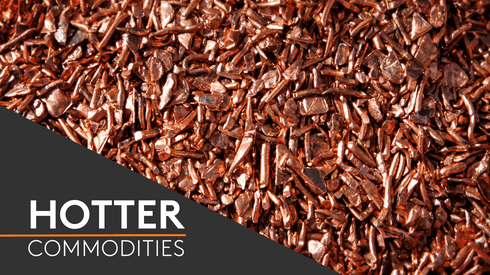Arriagada added that he was positive of the company’s own negotiations with miners at its Los Pelambres project.
“What we’ve seen, which is positive, is that many companies have advanced negotiations, which has given more time to close negotiations [with no strikes],” Arriagada said.
“I think we will continue to see that pattern going forward and I think that will mitigate production issues in Chile,” he added.
The London Metal Exchange three-month copper prices gained over $7,200 per tonne in December on expectations of supply disruptions this year. 2.5 million tonnes or 43% of copper output from the world’s top producer – Chile – is at risk this year.
But miners have tried to limit output losses by starting negotiations early; Antofagasta, which has never experienced a strike before, has already agreed early labor contract settlements with the plant union at Los Pelambres as well as workers at its Centinela and Zaldívar mines. Arriagada was positive the company will keep its 100% record on no strikes this time around.
“We have a good track record of labor negations; we are expecting to forge some agreement with them,” Arriagada said in a call with reporters.
Mine workers at Los Pelambres rejected Antofagasta’s new contract offer on Friday last week, triggering a mediation process with the Chilean government, which is currently underway and should last between one and two weeks.
Arriagada, who oversaw a 59.1% profit increase at Antofagasta last year in line with higher copper prices was hopeful of an early settlement, but is keeping an eye on cash costs, which rose 4.2% in 2017.
“Our aim is to have a fair outcome so we are able to provide a satisfactory contract to the workers but at the same time focus on the sustainability of our business in the long term,” Arriagada said.
“We need to keep competitive and have some cost pressures, so we need to balance with cost competitiveness, which is key to our company going forward,” he added.
Los Pelambres, which is Antofagasta’s largest copper mine, produced 368,000 tonnes of copper in 2016.
The Metal Bulletin’s copper concentrate treatment and refining charge index dropped to a multi-year low of $68.80 per tonne / 6.88 cents per lb in February while traders aggressively bid for tonnes, expecting a mined copper deficit later this year.



